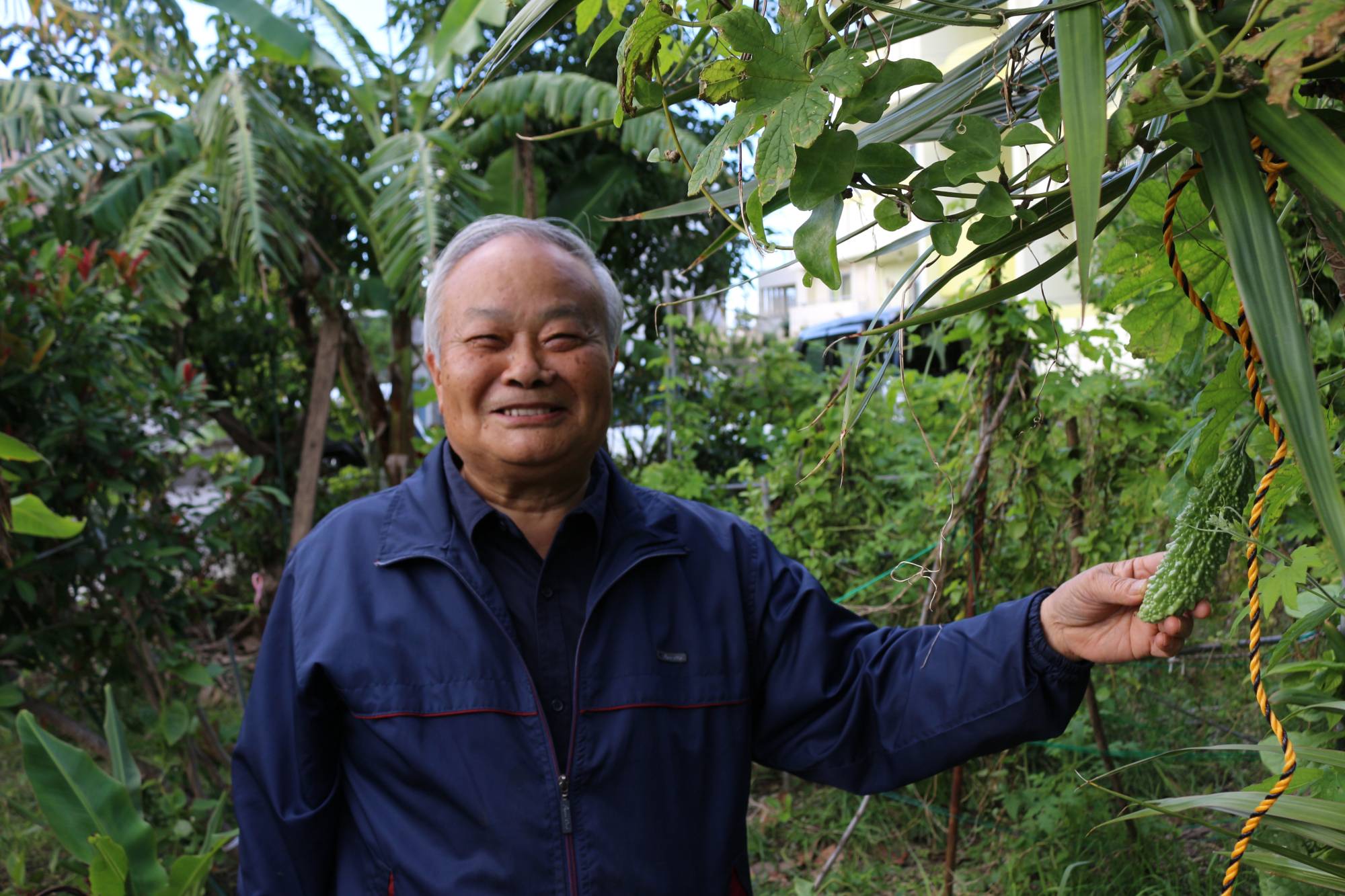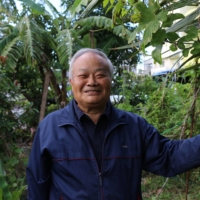From Costa Rica to West Africa, the practice of bokashi — the use of fermented waste as fertilizer — has taken root, especially as the cost of chemical fertilizer has surged due to the war in Ukraine.
Standing behind the popularization of bokashi is Teruo Higa, professor emeritus of horticulture at the University of the Ryukyus in Okinawa Prefecture. His research, and related Effective Microorganisms product, has spread the approach as an environmentally friendly alternative to chemical fertilizer.
Unlike composting, bokashi ferments organic waste to help break it down into available nutrients and energy for plants. The process of fermentation creates a potent mix of microorganisms that can play a vital role in maintaining the fertility, structure and overall health of soil.
Farmers worldwide have shown a preference for bokashi over traditional composting because it is much quicker to prepare — 12 days compared with 30. At the same time, the appeal of the Japanese practice has only grown as chemical fertilizers have become scarcer and more expensive. Indeed, bokashi can cost a fraction of the price and can be prepared using locally available ingredients.
This interview with Higa has been edited and condensed for clarity.
How do pesticides and fertilizers affect soil?
Most pesticides and chemical fertilizers disrupt the balance of microorganisms in the soil dramatically. This makes it easier for harmful microorganisms, like disease, to prosper and accelerate soil degradation. Due to the development of organic farming and the study of microorganisms, we are beginning to understand that soil and plant health is more complex than nitrogen, phosphorous and potassium — the ingredients of chemical fertilizer.
Why did you decide to focus on studying microorganisms?
Initially, I had worked under the belief that perfect farming would be achieved if chemical fertilizers, pesticides and agricultural machinery were used thoroughly. Although I got promising results at first, as the years went by, the soil started to deteriorate, diseases became more frequent, and more and more chemicals were needed.
I was also diagnosed with chronic pesticide poisoning and received sincere warnings from my doctor that I would not live to be 50 years old. All this was due to my disregard for the laws of mother nature. Having learnt from this mistake, I took up the challenge of applying the power of microorganisms that I had learnt from my grandfather as a child.
What was your breakthrough moment?
It was an accident. At first, we had been working on one microorganism at a time to clarify scientific cause-and-effect relationships. However, nature is always complex.
It happened when I was collecting several strains in the same bucket to dispose of them at the end of the day. But I felt it was such a waste to flush these strains down the drain, considering their costs, and decided to sprinkle them on a patch of grass instead. A week later, I saw an obvious difference on the spot. That was when I realized that the key was the combination of microbes — the greater the population, the richer the ecosystem. This is when I started to develop the recipe for Effective Microorganisms.
Can you use bokashi in your garden at home as a fertilizer?
Instead of composting your food waste, you can use bokashi to ferment it into fertilizer. More and more people have been using it in home and balcony gardens. It’s a virtuous cycle that leads to many cost and energy savings.



















With your current subscription plan you can comment on stories. However, before writing your first comment, please create a display name in the Profile section of your subscriber account page.